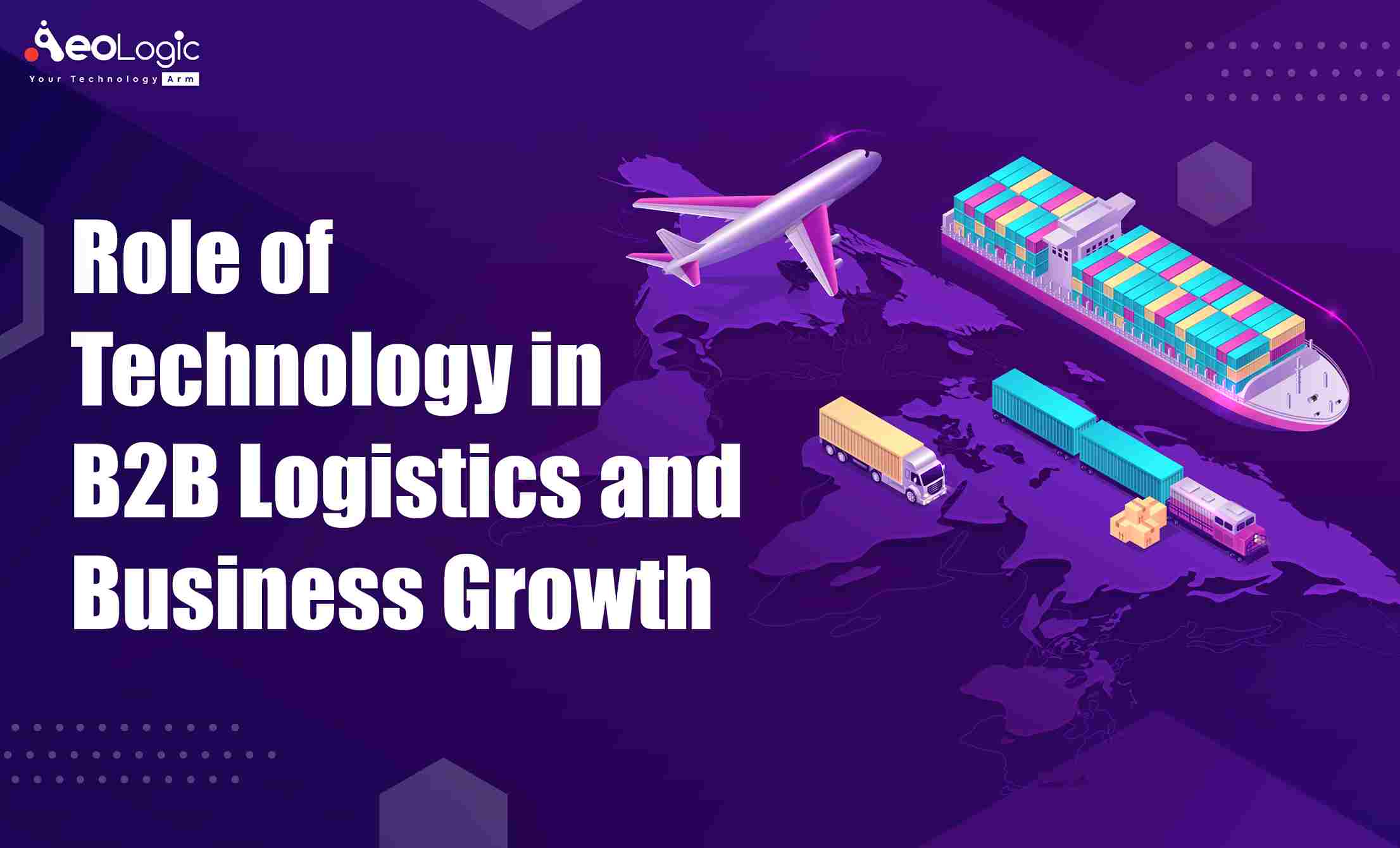In this ever-evolving digital age, technology plays a major role in the success of businesses. From increased efficiency to higher customer satisfaction, the use of technology can have a huge impact on B2B logistics and business growth. In this article, we’ll explore how technology can be used in B2B logistics and business growth, as well as the pros and cons of using it. So read on to find out more about the role of technology in B2B logistics and business growth!
The Role of Technology in B2B Logistics
Technology has always played a major role in logistics, but its importance has grown exponentially in recent years. As the global economy has become more interconnected, businesses have had to find ways to move goods and services around the world quickly and efficiently. This has put a greater emphasis on the need for efficient logistics systems.
Technology has helped to make logistics more efficient in a number of ways. First, it has made communication and coordination between different parties involved in the supply chain easier. This includes things like real-time tracking of shipments, which allows businesses to know exactly where their goods are at all times. Second, technology has helped to automate many of the tasks involved in logistics, such as routing and scheduling. This has resulted in fewer errors and delays, and has made the overall process more efficient. Finally, technology has made it possible to store and access large amounts of data related to logistics. This data can be used to improve planning and decision-making related to logistics operations.
The role of technology in logistics is only going to become more important in the future. As businesses become increasingly globalized, they will need to rely on efficient logistics systems even more heavily in order to compete. Therefore, investing in new technologies that can help improve logistical efficiency is likely to pay off handsomely for companies in the long run.
Also Read: Role of Information Technology in Business Environment
What are the Benefits of Technology in B2B Logistics?
Technology has been a game-changer in the logistics and transportation industry. It has helped businesses to improve their efficiency and productivity, while reducing their costs. Here are some of the benefits of technology in B2B logistics:
1.Improved Tracking and Visibility
One of the biggest benefits of technology in logistics is the improved tracking and visibility it offers. With the help of GPS tracking devices, businesses can now track their shipments in real-time, 24/7. This helps them to keep tabs on their shipments, and ensure that they are delivered on time.
2. Enhanced Customer Service
Another benefit of technology in B2B logistics is enhanced customer service. With the help of online tools and apps, businesses can now communicate with their customers more effectively, and provide them with updated information about their shipments. This helps to build trust and loyalty among customers.
3. Increased Efficiency
Technology has also helped to increase the efficiency of businesses in the logistics industry. With the help of automation, businesses can now manage their operations more effectively, and reduce errors and delays. This leads to improved operational efficiency and productivity.
4. Cost Savings
Last but not least, technology can also help businesses to save money on their logistics operations. By automating repetitive tasks, businesses can reduce their labor costs, and by using data analytics, they can optimize their routes and find cost-effective shipping solutions.
Also Read: Technology Solutions for Healthcare
How Can You Leverage Technology for Successful Business Growth?
In business, technology plays a vital role in growth. By leveraging technology, businesses can increase efficiency and productivity, gain new insights, and drive innovation. Here are some ways businesses can use technology to support growth:
1. Use data and analytics to drive decision-making: Data-driven decision-making is essential for businesses looking to grow. Technology can help businesses collect, clean, and analyze data to uncover trends and patterns. This information can then be used to inform strategic decisions about where to allocate resources, how to better serve customers, and which new products or services to develop.
2. Increase operational efficiency: Technology can help businesses automate tasks and improve communication and collaboration across teams. This can free up time and resources that can be reinvested in other areas of the business, such as research and development or marketing and sales.
3. Connect with customers online: In today’s digital world, it’s important for businesses to have an online presence. Customers expect to be able to find information about products and services online, and they often make purchase decisions based on what they read online. By creating a website and using social media, businesses can reach more customers and build relationships with them.
4. Drive innovation: Technology can help businesses create new products or services or find new ways of doing things. By investing in research and development, companies can stay ahead of the competition and continue to grow.
Also Read: The Importance of Information Technology in Business Today
Technology Trends for 2022
2018 is shaping up to be an exciting year for technology. Here are some of the biggest trends we think will have an impact on logistics and business growth:
1. Big data and analytics – With the continued growth of big data, businesses are turning to analytics to help make better decisions about their operations. By understanding trends and patterns in customer behavior, businesses can optimize their supply chains and better meet customer demand.
2. Automation – Automation is becoming increasingly important in the logistics industry as a way to improve efficiency and accuracy. From automated warehouses to drones, there are many ways that technology can help streamline logistics operations.
3. Internet of Things – The internet of things (IoT) refers to the growing network of devices that are connected to the internet. This trend is revolutionizing how businesses track and manage their assets, as well as how they interact with customers.
4. Blockchain – Blockchain is a distributed database that allows for secure, transparent and tamper-proof transactions. This technology has the potential to revolutionize supply chain management by providing a more efficient and secure way to track goods and assets throughout the supply chain.
5. 3D printing – 3D printing is becoming increasingly popular as a way to quickly prototype and manufacture products on-demand. This technology can be used in a variety of industries, including logistics, to create custom packaging or parts on-demand.
If you are planning to integrate technology into your business, our experts can help you materialize your vision. Please get in touch with us.
Also Read: Importance of Information Technology in Today’s World
Conclusion
Technology plays a vital role in the success of B2B logistics and businesses. It has revolutionized the way companies operate and has greatly enhanced efficiency and productivity. From automation and data analytics to supply chain management and communication, technology has significantly impacted the way B2B companies compete and succeed in today’s market. As technology continues to advance, it will be important for B2B logistics and businesses to stay up-to-date and leverage the latest technological innovations to drive growth and remain competitive.
If you are also interested in taking an initiative in the technology sector and looking for industry experts, kindly collaborate for a collective effort. Do not hesitate to contact us at Aeologic Technologies.
Recommended Reading
- The Importance of Information Technology in Retail
- The Future of IoT Technology in Convenience Stores
- The Benefits of Cloud-Native Applications in Manufacturing
- 10 Ways to Use Artificial Intelligence to Improve Business Processes
- Machine Learning and IoT: How It Can Be Beneficial for Businesses?

I’m Deepika Pandey, an SEO strategist and content writer with 6+ years of experience. I create SEO-friendly content that drives traffic and engages readers. I combine data insights with creativity to help businesses grow their online presence effectively.





